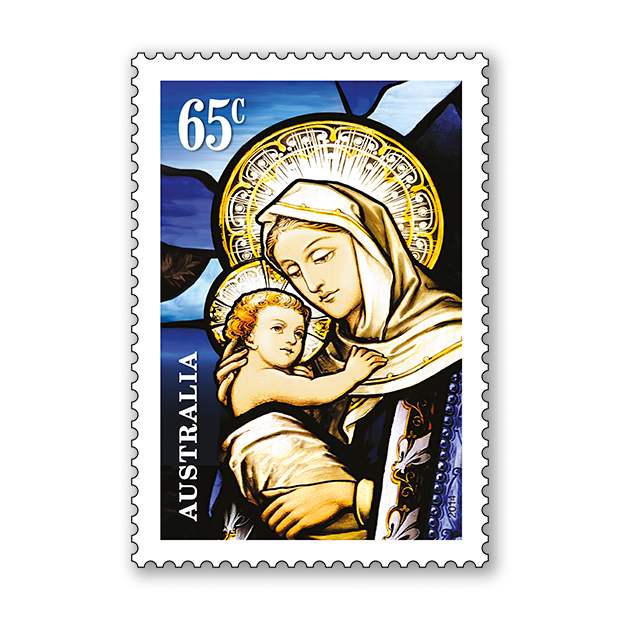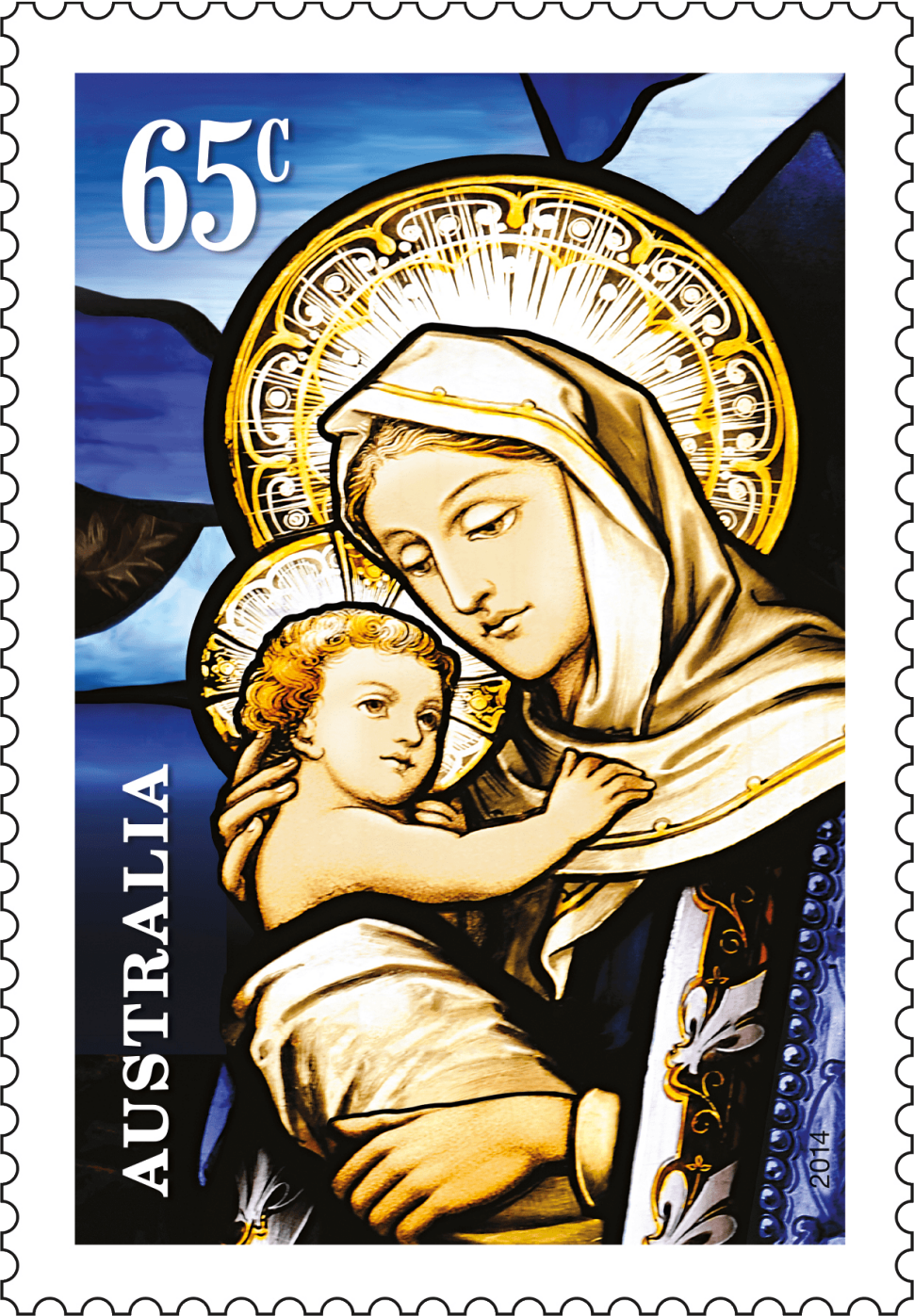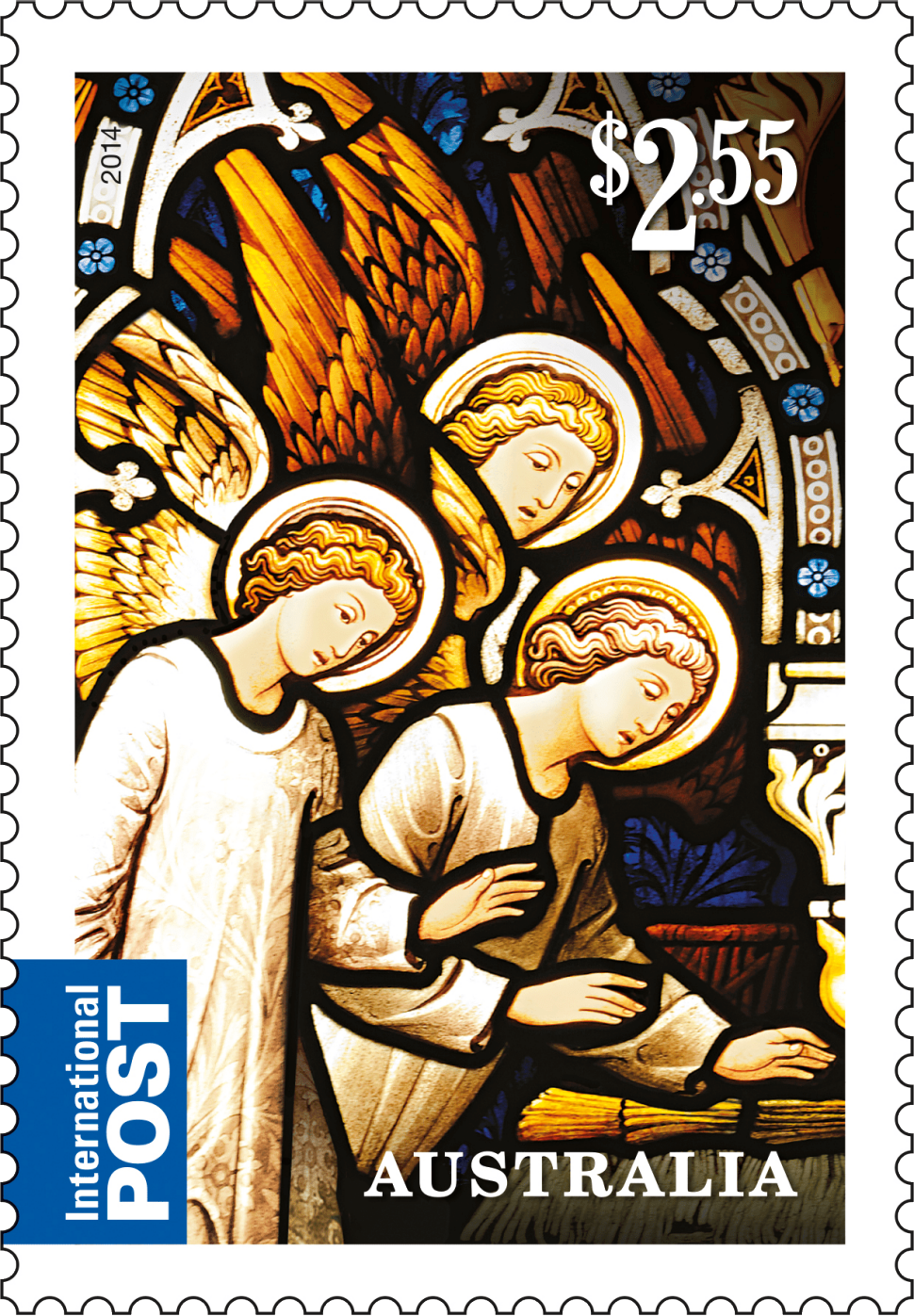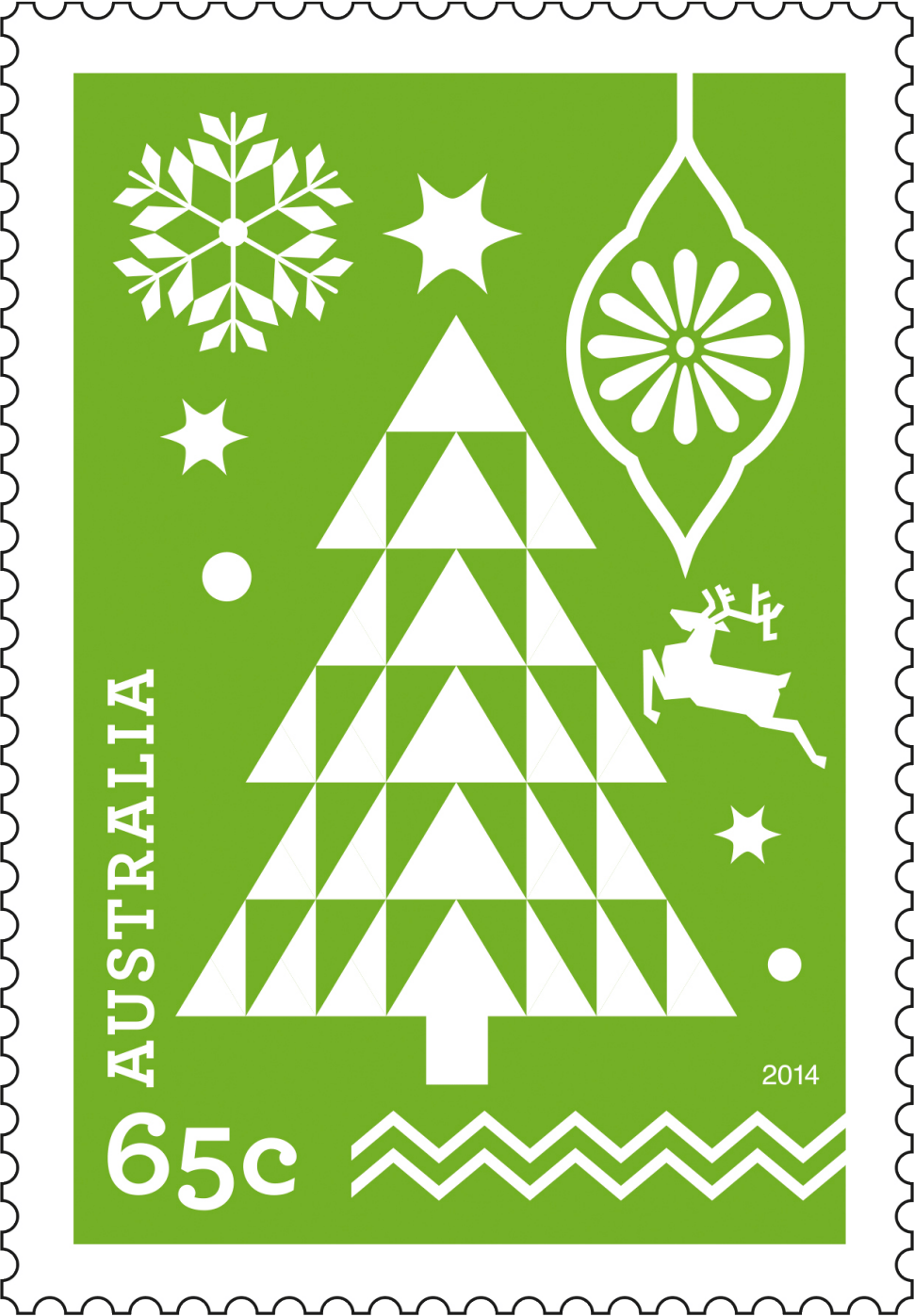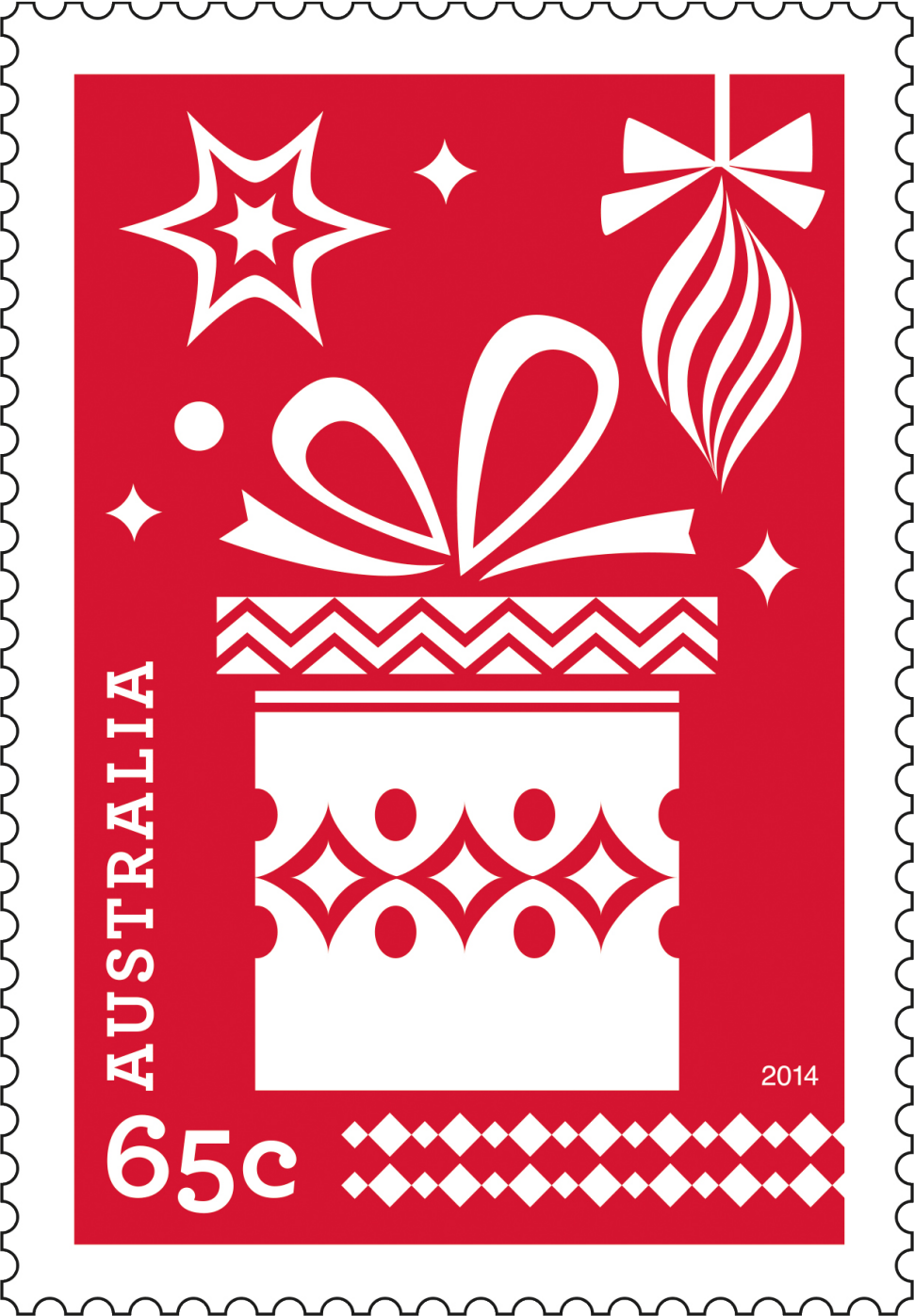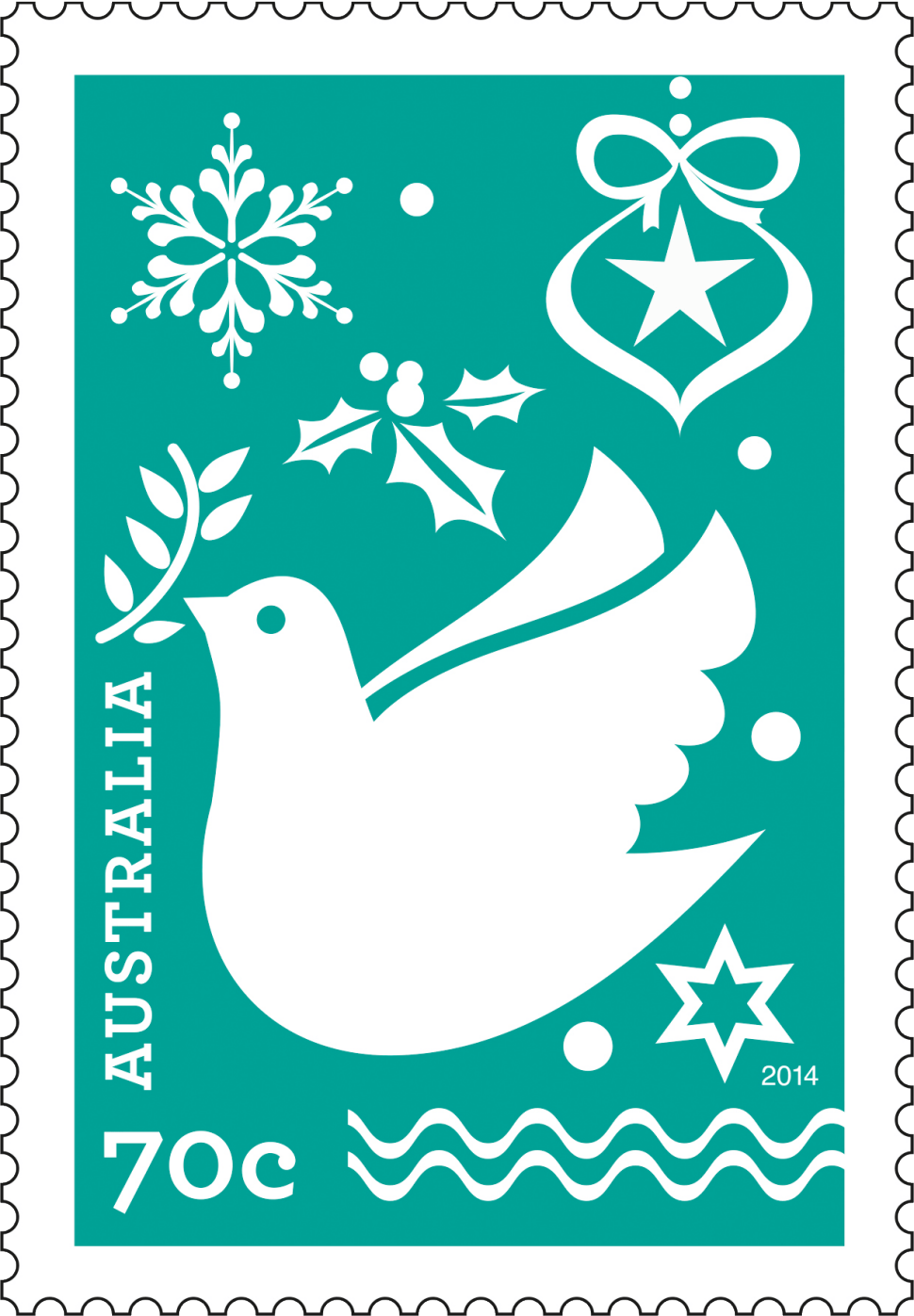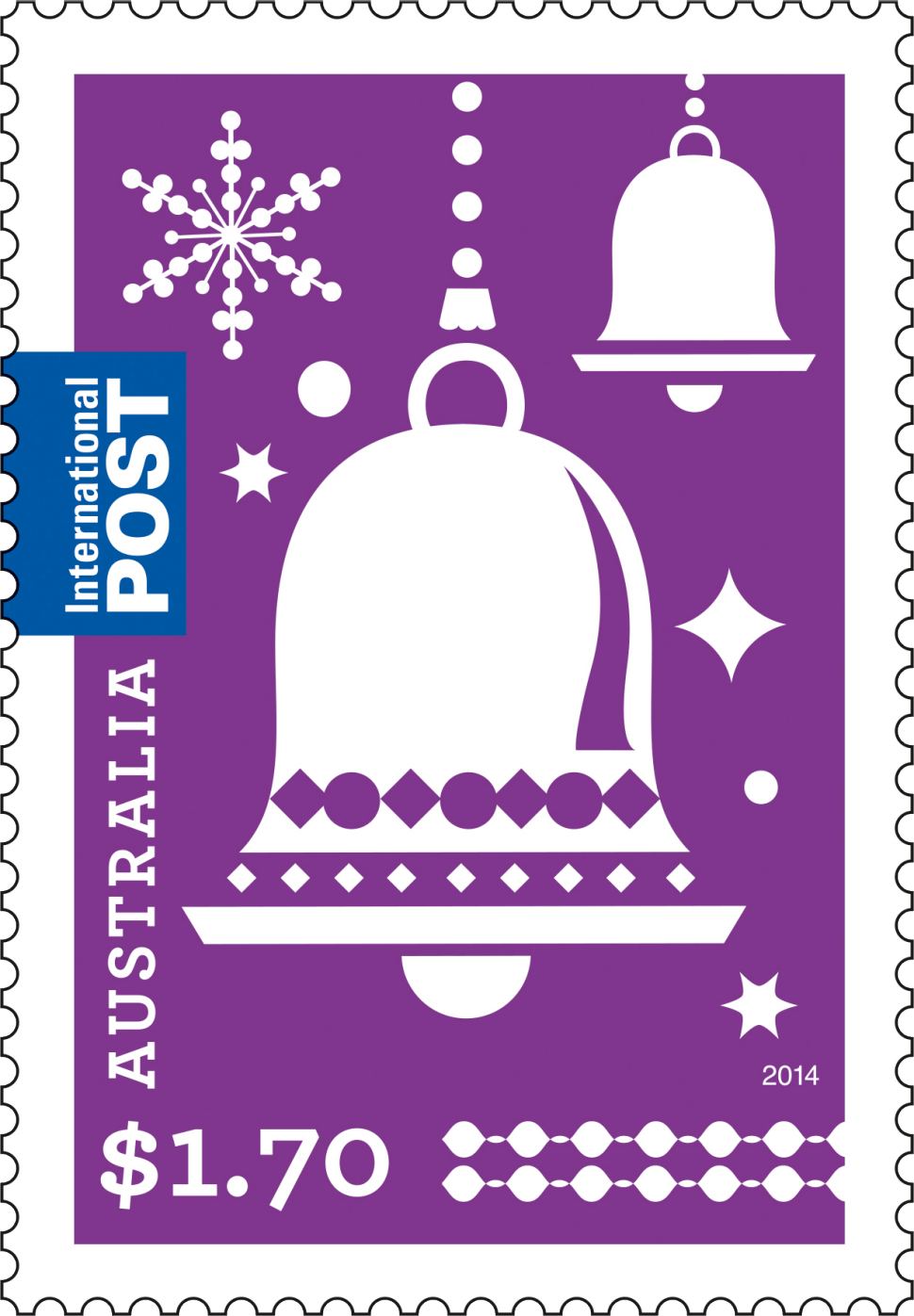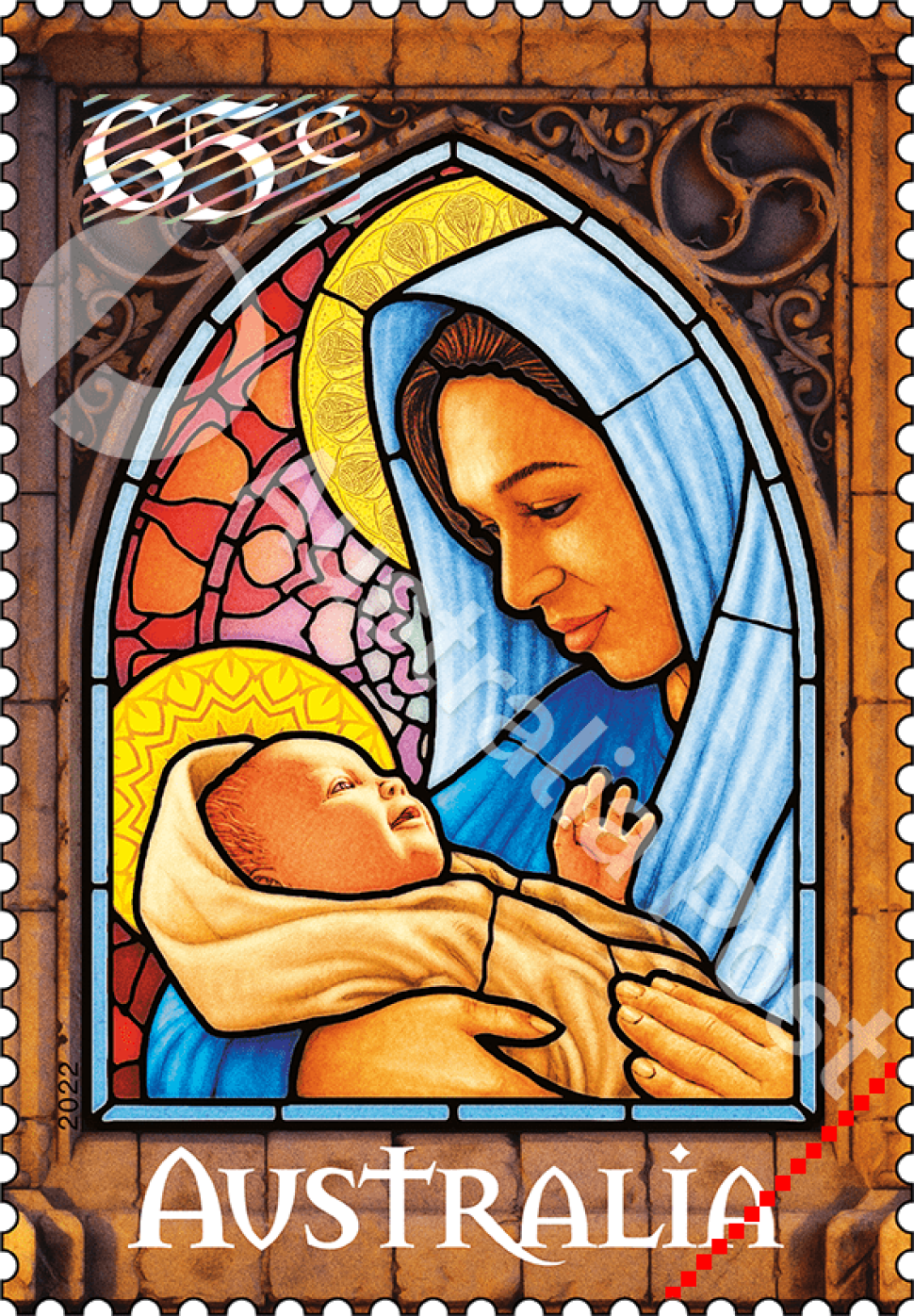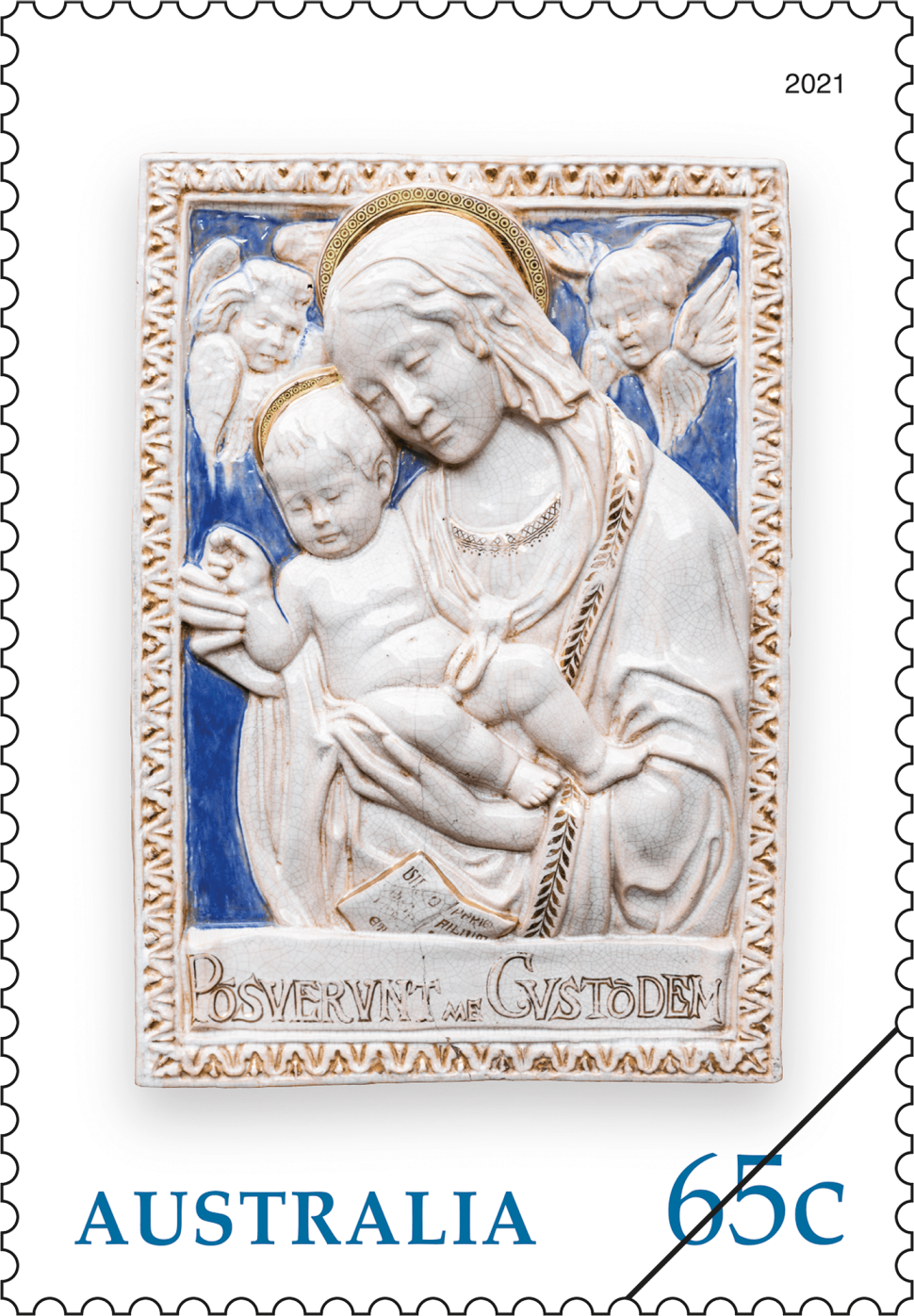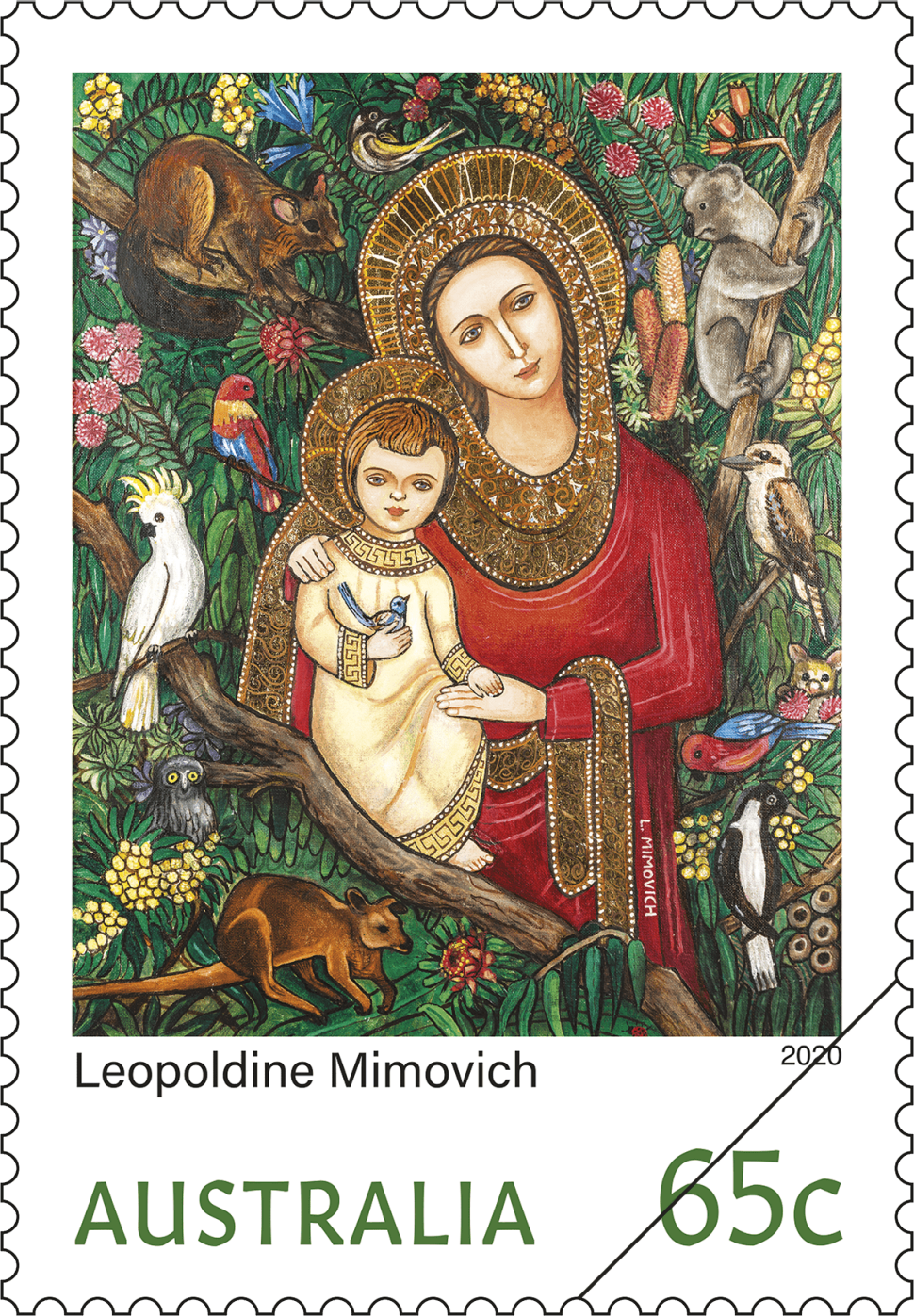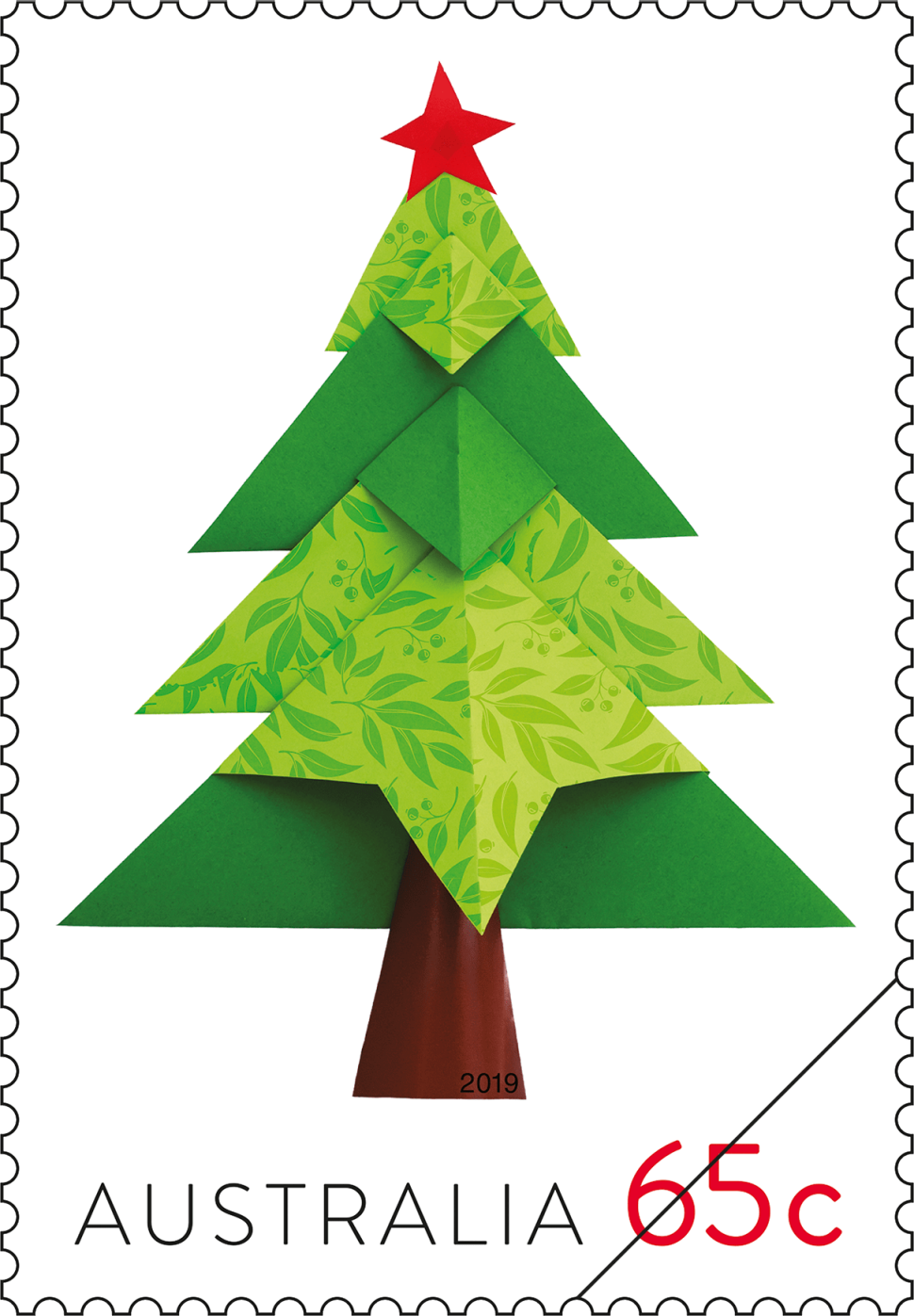This year’s religious stamps are based on stained-glass windows in St Patrick’s Cathedral, Melbourne. This imposing bluestone building is both the tallest and largest church building in Australia and one of the world’s largest Gothic revival 19th-century churches—only St Patrick’s Cathedral in New York is comparable. Designed by Englishman and Catholic convert William Wardell, St Patrick’s was one of his earliest commissions. Begun in 1858, the Cathedral was not completely finished until 1939, the delay due to the depression of the 1890s as well as shortage of funds during construction. St Patrick’s Cathedral was consecrated in 1897 and dedicated to the patron saint of Ireland.
Wardell based his design on both English and French Gothic traditions. The nave and aisles recall the English Gothic while the transepts, sanctuary, chapels and sacristry are more closely modelled on French 14th-century examples. As with medieval Gothic churches, St Patrick’s is embellished with many beautiful stained-glass windows depicting religious and Biblical scenes. Nearly all the windows were manufactured by English company Hardman, which was based in Birmingham. Hardman began making stained glass in 1844 and became one of the world’s leading suppliers of stained glass and ecclesiastical fittings. The company’s most famous commission was London’s Houses of Parliament in the 1840s, and it was also responsible for many church windows in Britain and Ireland. Hardman made the windows for several Australian churches, including St Joseph’s Catholic Church in Hobart, St Andrew’s Anglican Cathedral in Sydney and St Mary’s Catholic Cathedral, also in Sydney. In Melbourne, Hardman’s furnished windows for St Francis’, the city’s oldest Catholic Church, as well as St Patrick’s Cathedral.
The windows at St Patrick’s were installed from 1866. The windows depicted on the stamps are in the Ladye Chapel in the chevet or apse area of the cathedral. These windows were fitted in 1892 and show scenes from the Life of the Virgin. The stamps represent details from the chapel windows representing the Flight into Egypt and the Nativity of Christ. The Flight into Egypt, described in Matthew 2:13-23, took place after Christ’s birth when an angel appeared to Joseph, warning him that King Herod intended to kill all infants in Bethlehem. The family fled to Egypt, with Mary and the Christ child riding on a donkey led by Joseph. The angels on the second stamp are a detail of the Nativity scene that shows the newborn child lying in the manger and adored by Mary, Joseph and the angels.
As an alternative to the religious themes, the festive, colourful stamps represent the familiar trappings of Christmas celebrations and recall techniques of paper cut design as well as snow crystals.
Designer
Andrew Hogg Design
Jo Muré, Australia Post Design Studio
Products released in this issue
- Stamp pack
- Sheetlet of 10 x 65c Tree and 65c Parcel (embellished)
- Sheetlet pack
- Maxicard
- Postal numismatic cover
- Booklet of 20
- Chequebook of 20 x 20
- Sheetlet of 5
- Chequebook of 20 x 5
- Gutter strips
- 2014 Gift Labels (pack of 50)
- Minisheet
- Cover (blank pictorial, gummed and minisheet)
Technical specifications
- Issue date
- 31 October 2014
- Issue withdrawal date
- 30 April 2015
- Denominations
- Religious: 1 x 65c, 1 x $2.55; Secular 2 x 65c, 1 x 70c, 1 x $1.70
- Stamp design (religious)
- Andrew Hogg Design
- Product design (religious)
- Jo Mure, Australia Post Design Studio
- Paper - gummed
- Tullis Russell
- Printer - gummed
- McKellar
- Paper self-adhesive
- C100
- Printer self-adhesive
- McKellar
- Stamp design (secular)
- Jo Mure, Australia Post Design Studio
- Product design (secular)
- Jo Mure, Australia Post Design Studio
- Paper - gummed
- Tullis Russell
- Printer - gummed
- EGO
- Paper self-adhesive
- B100
- Printer self-adhesive
- EGO
- Printing process
- Lithography
- Stamp size
- 26mm x 37.5mm
- Minisheet size
- 105mm x 70mm
- Sheetlet size
- 120mm x 192mm
- Perforations
- 14.6 x 13.86
- Sheet layout
- Module of 50
- FDI postmark
- Glenorchy, TAS 7010
- FDI withdrawal date
- 11 February 2014
This content was produced at the time of the stamp issue release date and will not be updated.

